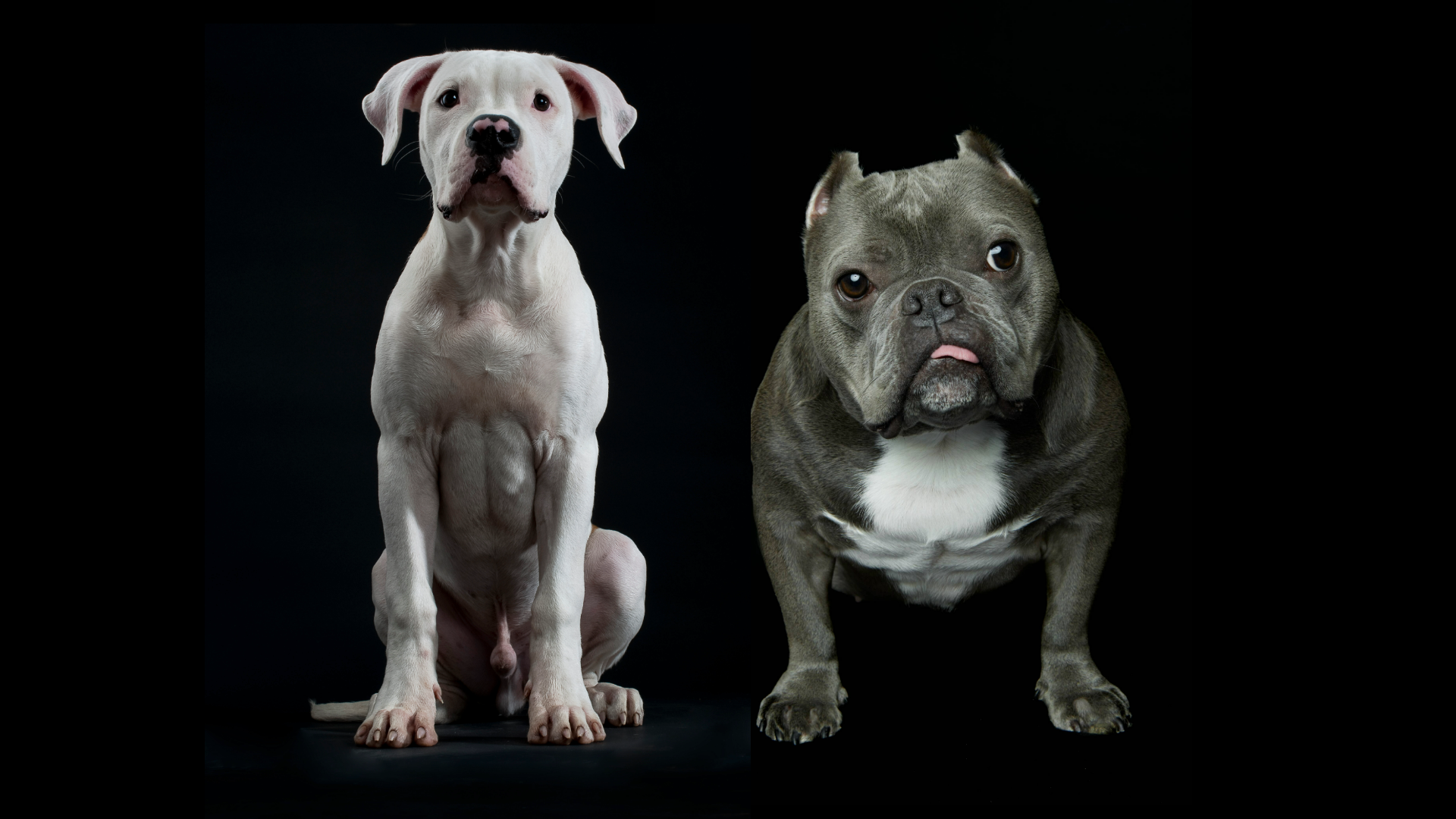Cavapoo vs Cockapoo: An expert compares these two adorable breeds
Choosing between a Cavapoo and a Cockapoo? Our vet explains the key differences, including grooming, trainability, and which type of owner they suit best
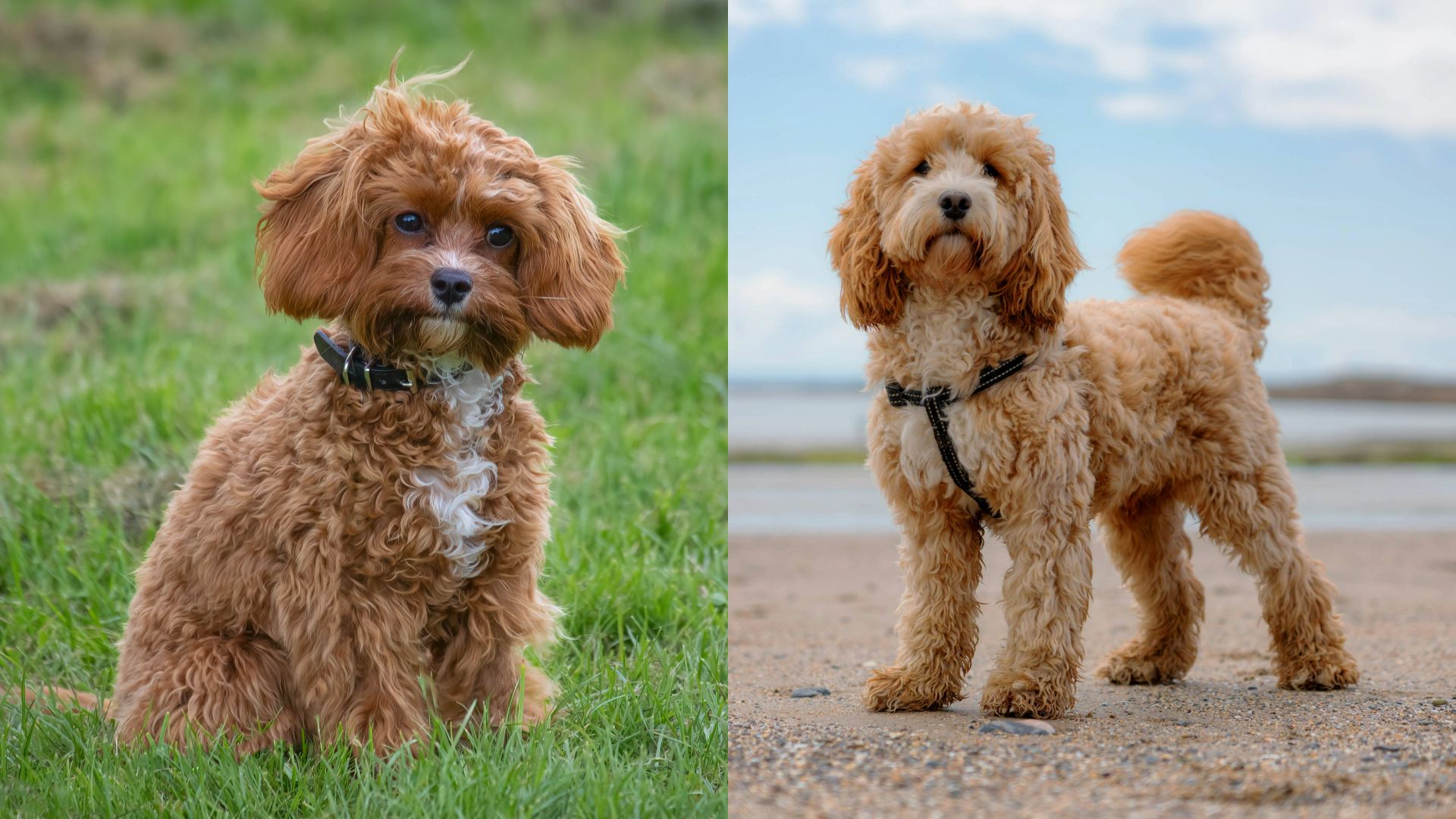
If you think about the cutest dog breeds, Cavapoos and Cockapoos will probably spring to mind. Thanks to their teddy-bear appearance and friendly personalities, it's hard not to love these gorgeous little dogs.
While these breeds may look very similar, they actually have quite a few differences –the biggest one being their mix, of course. Both breeds are half poodle, but the Cavapoo is part Cavalier King Charles Spaniel, while the Cockapoo is part Cocker Spaniel (read more about the Cavalier King Charles vs Cocker here).
These poodle mixes also have slightly different temperaments, exercise needs, and trainability, as well as varying suitability for different owners. To learn more about their similarities and differences (and which "poo" is right for you), we've called in expert vet Dr Rebecca MacMillan to give you the lowdown.
Size: Cavapoo vs cockapoo
The size of these dogs depends on their parents, but Cavapoos usually stand between nine and 15 inches tall and weigh between nine and 25 pounds.
Cockapoos have more variation and can be around eight to 18 inches in height and weigh between five and 35 pounds.
Appearance: Cavapoo vs cockapoo
Cavapoos have a medium-length coat that’s hypoallergenic and can be curly, wavy, or straight – depending on whether they inherit poodle or Cavalier genetics. They come in fawn, gold, chocolate, tri-color, cream, and chestnut.
Cockapoos can have curly or wavy coats, which also depend on their parents' genetics, and they come in cream, apricot, red, chocolate, black, or part-color combinations. Like Cavapoos, this breed is also considered hypoallergenic, as they don’t tend to shed too much.
PetsRadar Newsletter
Get the best advice, tips and top tech for your beloved Pets
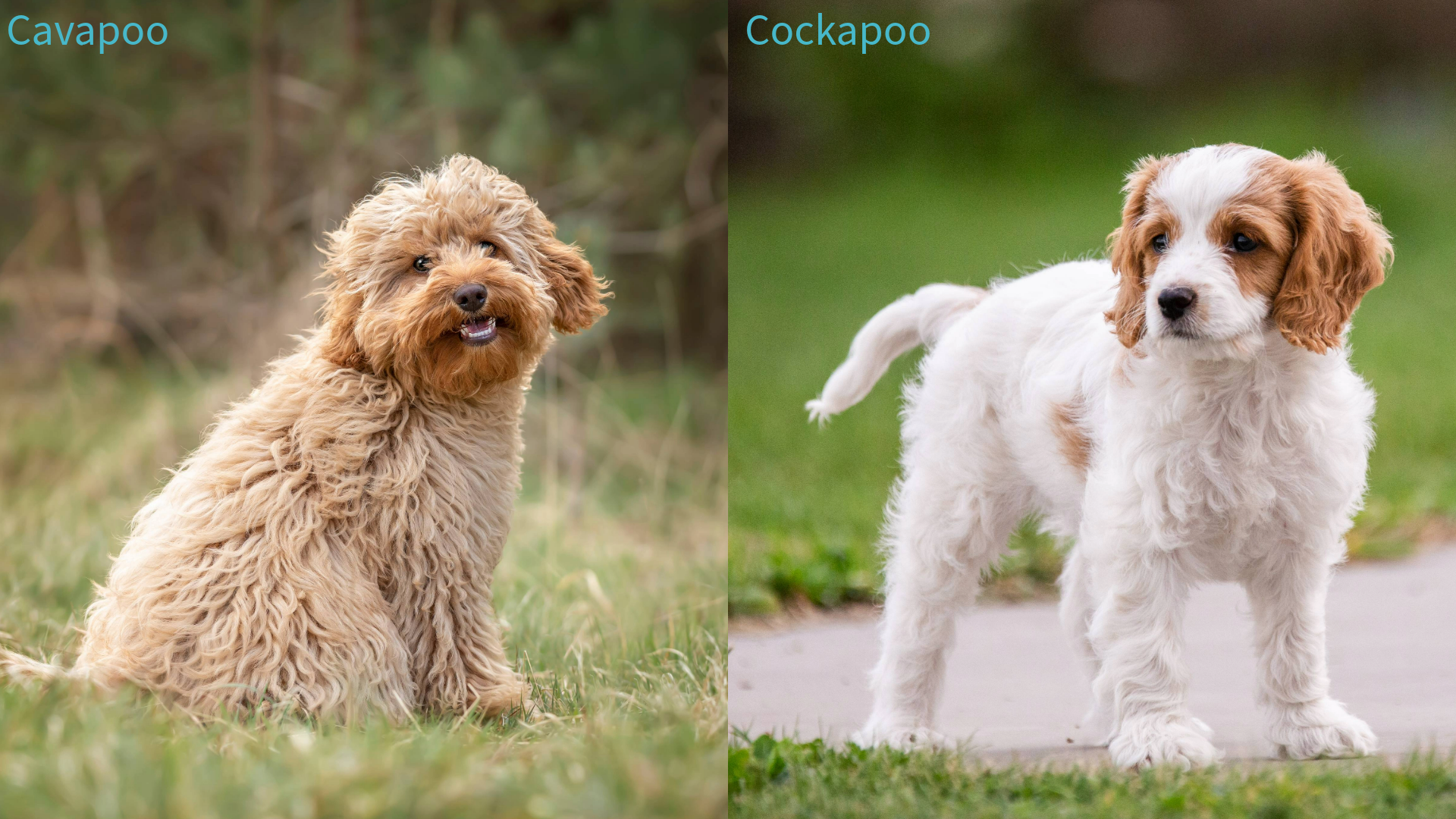
Trainability and intelligence: Cavapoo vs cockapoo
As long as you use the right positive reinforcement and maintain a consistent approach, Cavapoos and Cockapoos are highly trainable.
Dr MacMillan says: "Cavapoos have the intelligence of a poodle and the sociable, eager-to-please nature of a Cavalier King Charles Spaniel. This winning combination makes these dogs easy to train compared to many other breeds.
"With the right consistent approach, Cockapoos are relatively easy to train. Their poodle heritage makes these dogs extremely intelligent, while their Cocker Spaniel genes give them a friendly and eager-to-please nature. A good combination when it comes to training!"
These little dogs might look like teddy bears, but due to their heritage of smart breeds, they need plenty of mental stimulation, like regular training sessions, interactive games, and obedience classes to keep their brains ticking. For Cockapoos, you might also want to consider agility training!
Exercise needs: Cavapoo vs cockapoo
When it comes to exercise, Cockapoos need slightly more, with Dr MacMillan recommending around 60 minutes of "good physical activity" each day. This can be split into two shorter sessions.
Cavapoos still need moderate exercise, with 30– 60 minutes of activity suiting most dogs, but this depends on their age and health status.
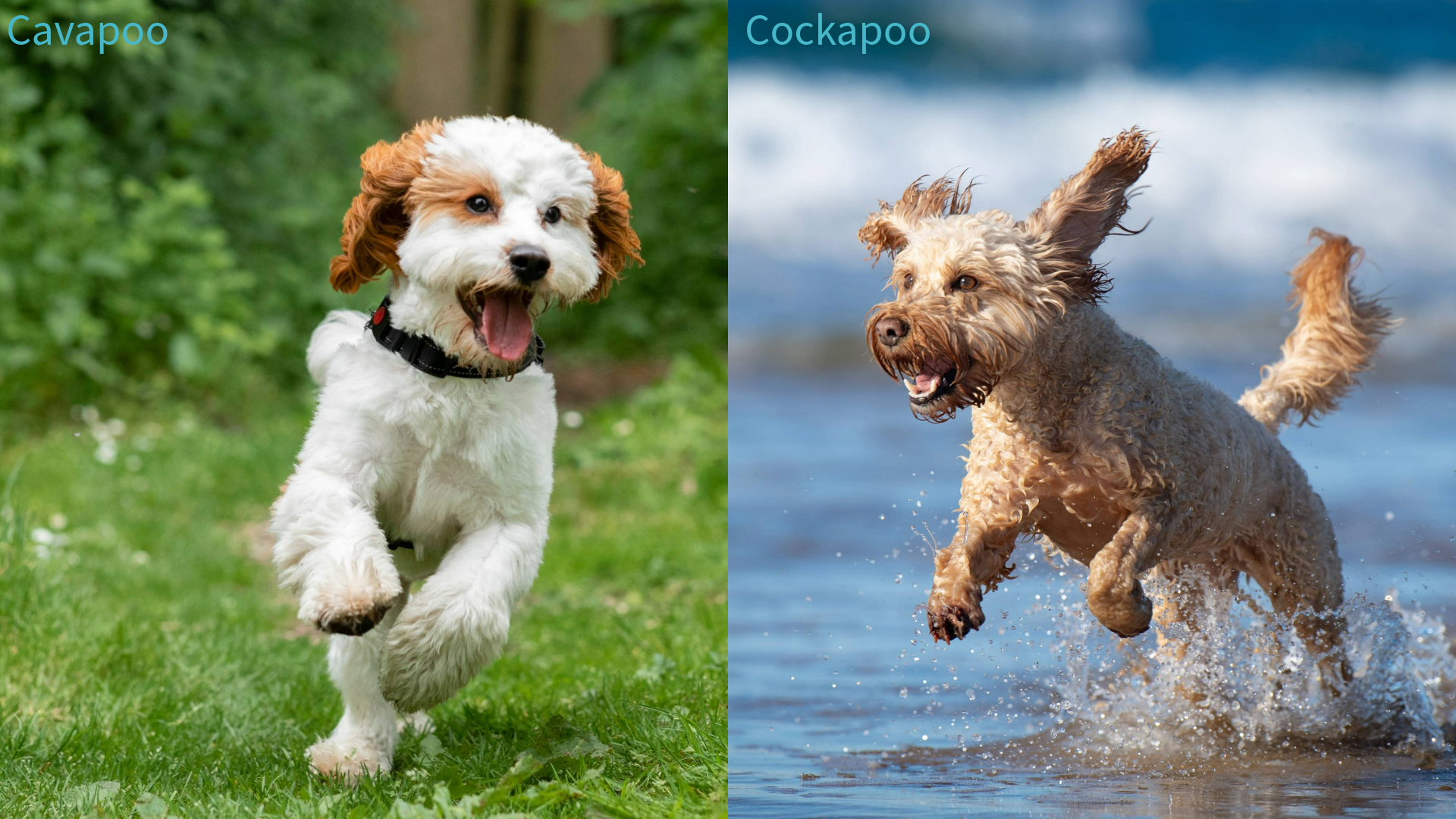
Grooming: Cavapoo vs cockapoo
Since both of these dogs are crossbred, their coat types vary depending on the genetics they inherit.
For Cavapoos, there are three main coat types:
Wool coat:
Wool coats are thick, shed the least, and have tight, Poodle-like curls. They are prone to knots and tangles, so Dr MacMillan recommends brushing them at least twice a week and using a detangling spray if needed (like this one on Amazon).
"Teasing out knots when the coat is wet can sometimes be easier with these dogs. Many owners have their dog’s wool coat clipped to keep their fur at a more manageable length."
For more tips and tricks on how to groom a dog, have a read of our expert guide.
Fleece coat (or wavy coat):
Soft and silky with loose, wavy curls, fleece coats are low-shedding and require less maintenance than wool coats. You'll still need to groom them regularly using the best dog brushes, and some owners decide to shave or trim them every six to eight weeks to keep them in tip-top shape.
Straight coat:
Straight coats are the easiest to maintain and can be left as they are or trimmed occasionally. Dr MacMillan advises brushing them once or twice a week but warns that they shed the most out of all the coat types.
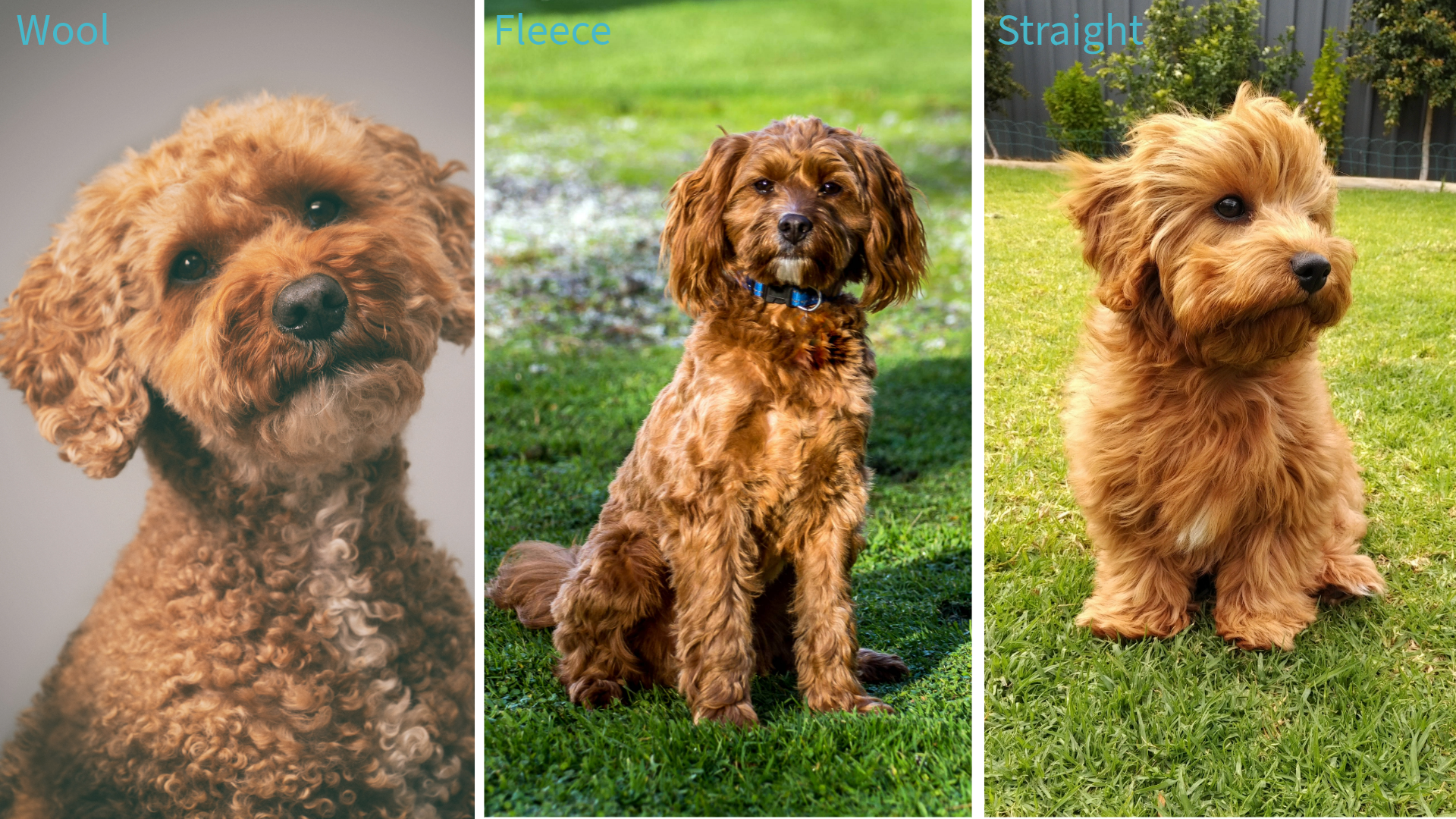
Cockapoos will either have a wavy coat from the Cocker Spaniel side or tight curls from the Poodle – with the former being the easiest to care for. However, no matter which coat type they have, they'll still need brushing two to three times a week.
For Poodle-like coats, Dr MacMillan recommends using a comb rather than a brush (like this one on Amazon) and says it can be easier to do after a bath when the fur is wet.
She adds: "Some owners find it easier to take their Cockerpoo to the groomers for regular coat maintenance. Keeping the coat clipped to a manageable length can also make it much easier to look after, especially if your Cockerpoo is the type that enjoys romping through mud and undergrowth."
Health considerations: Cavapoo vs cockapoo
While crossbreed dogs don’t tend to suffer from as many inherited diseases, Dr MacMillan says this doesn’t rule them out altogether. Here are some conditions they might be prone to.
Cavapoo:
- Hip dysplasia: A developmental joint issue
- Luxating patella: A condition where the kneecap slides out of place
- Mitral valve disease: A heart condition that could lead to heart failure
- Syringomyelia: A condition causing issues with spinal fluid, resulting in pain, neurological signs, and balance problems
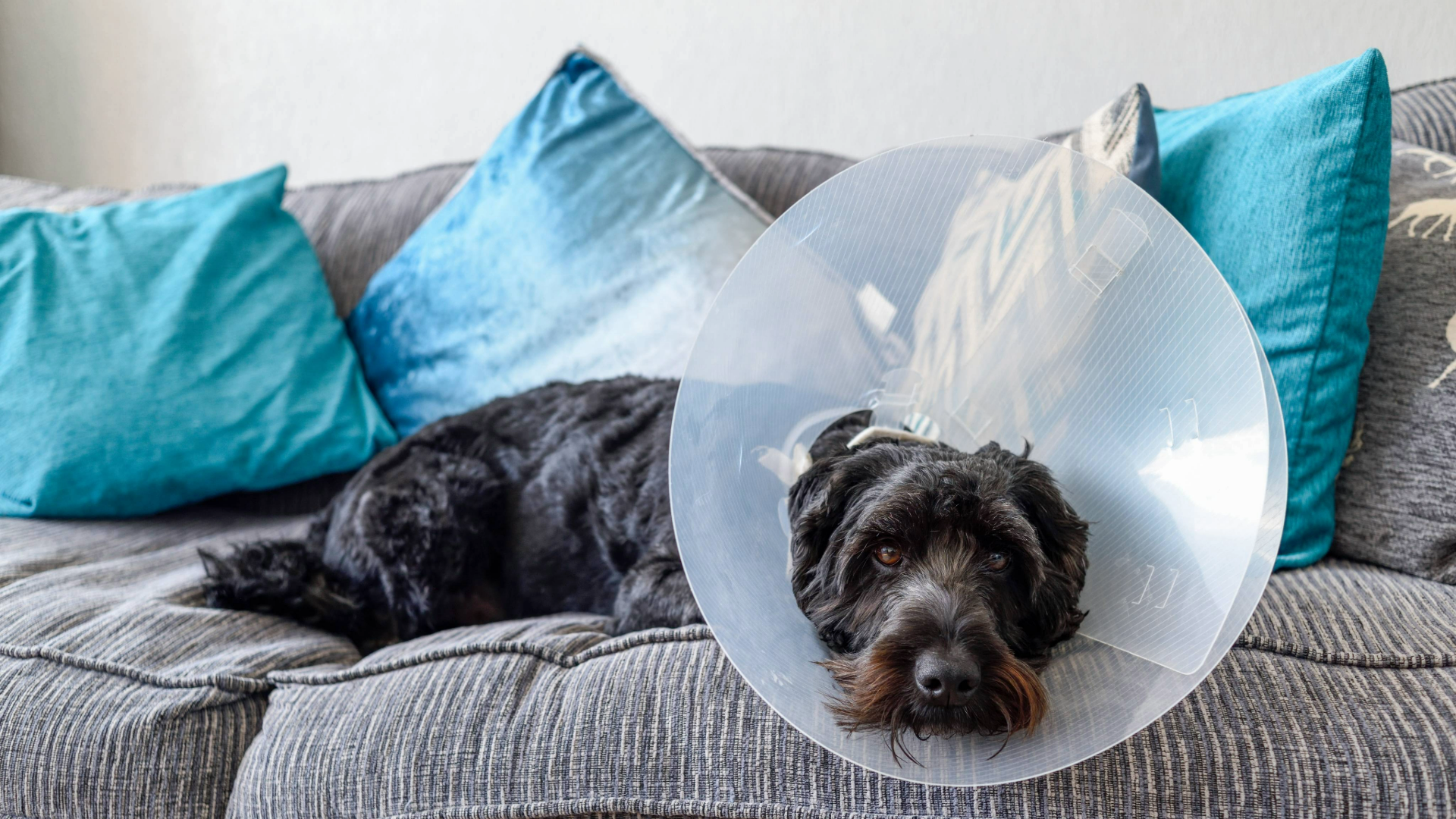
Cockapoo:
- Hereditary eye complaints: Including cataracts and progressive retinal atrophy (PRA)
- Hip dysplasia: A developmental joint issue
- Luxating patella: A condition where the kneecap slides out of place
- Ear and skin problems: "These little dogs seem very prone to skin allergies, and I often see Cockerpoos that are excessively itchy or have recurrent ear infections."
Owner suitability: Cavapoo vs cockapoo
Since Cavapoos are highly adaptable dogs, they fit in well with most families – as long as they receive the correct socialization and training.
Dr MacMillan says, "It is important to make sure that you meet all their care needs though, as any dog could develop behavioral issues if they don’t get enough physical and mental stimulation.
"With the Cavapoo's teddy-like appearance, it can be easy to baby them, so it is important that you are consistent with their training from an early age to avoid problems."
Cockapoos are also fairly adaptable, making them a good choice for most owners who can provide the mental and physical stimulation they need.
Dr. MacMillian says, "Due to their cute appearance, many families fall in love with them and welcome them into their homes. Unfortunately, I see many Cockerpoos that are poorly socialized and lacking in basic training, just because family life is too hectic.
"If dogs are not given the attention they need, then their behavior can become destructive, and they may develop issues like anxiety and aggression. Cockerpoos are very popular and with good reason, but it is important to be realistic about their care."
Want to learn more? Read reasons to love poodles, fascinating Cavalier King Charles Spaniel facts and our favorite things to love about Cocker Spaniels
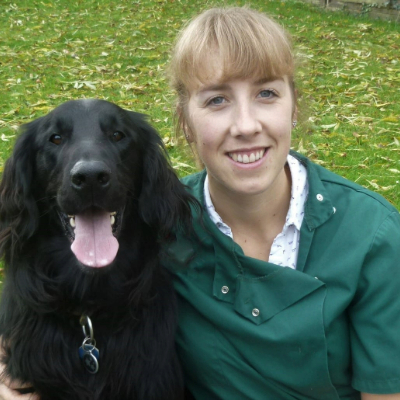
Rebecca is a veterinary surgeon who graduated in 2009 from the Royal Veterinary College in London. She has a wealth of experience in first opinion small animal practice, having done a mixture of day-to-day routine work, on-call emergency duties and managerial roles over the years. Rebecca enjoys medicine in particular and she is proud to have recently achieved a BSAVA postgraduate certificate in small animal medicine (with commendation).
Edited by Georgia Guerin and Alexis De Leaver.
This page was last updated in April 2025 by Megan Milstead.
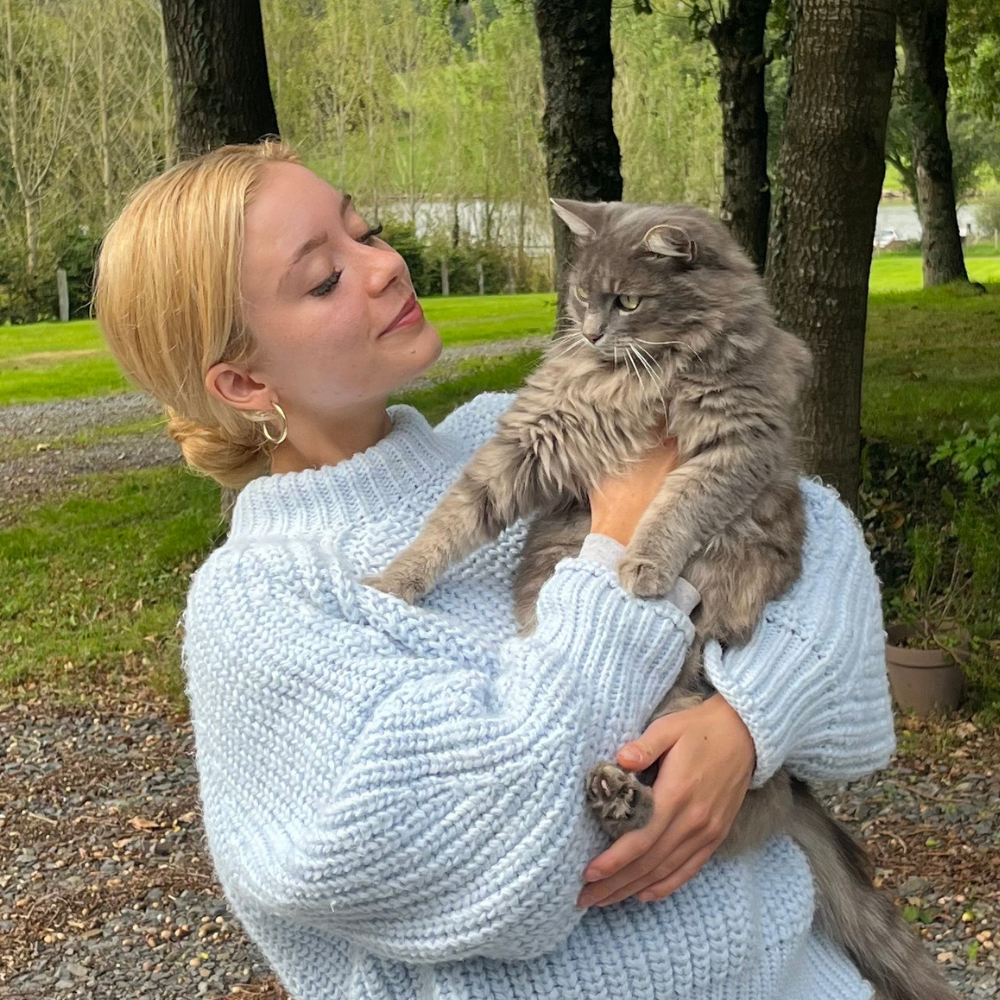
Megan is a Staff Writer at PetsRadar, covering features, reviews, deals, and buying guides. She has a wealth of experience caring for animals, having grown up with dogs, cats, horses, guinea pigs, and more throughout her life. She studied BA Journalism at the University of Westminster, where she specialized in lifestyle journalism and was editor of Smoke Radio’s lifestyle website. Megan works alongside qualified vets and accredited trainers to ensure you get the best advice possible. She is passionate about finding accurate and helpful answers to your pet-related questions.
